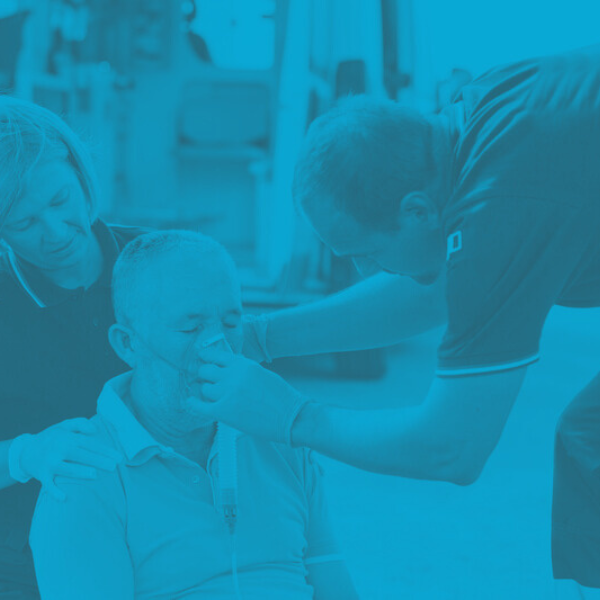Moving as a Nurse: 10 Tips to Make Job Transitions Easier
Moving as a Nurse: 10 Tips to Make Job Transitions Easier

by Greta Kviklyte
Life Saver, AMC
Co-authored by Kim Murray, RN, M.S.
posted on May 25, 2017, at 3:09 pm
DEMAND FOR NURSES WILL CLIMB 16 PERCENT BY 2024, reports the U.S. Bureau of Labor Statistics (BLS). Meanwhile, the average wage for nurses varies depending on the state in which the individual is employed. Furthermore, the overall rate of new nurses entering the workforce cannot keep up with demand. As a result, more health facilities will look for ways to attract nurses in an increasingly competitive industry.
In other words, bonuses, relocation pay, added benefit packages and other rewards may become commonplace as the nursing shortage looms in the background of increasing demand. Therefore, more nurses and other healthcare providers will likely relocate or consider changing employers to take advantage of these benefits.
We offer Online ACLS, PALS and BLS Certification and Renewal
Unfortunately, relocating for employment or changing employers can lead to tremendous stress and difficulties. However, nurses and health professionals can overcome such challenges by taking these tips into consideration when moving or changing employers.

1. Talk Your Decision to Relocate or Change Employers Over With Family and Friends.
Before taking a new position or relocating, talk your plans and options over with family members and friends. Discuss how the change may impact relationships, and if you have children, think about how changes in educational facilities may impact them. This discussion should not be a last-minute thought.
When discussing your options with friends, include friends that do not work in fields similar to healthcare. This will help you get an outside view of how your change in employment may impact your relationships. If you have existing friends at work, you may also want to discuss how your resignation from your current employer may impact co-workers. Obviously, you do not want a specific employer to hold you back from your goals or career plans, but it is important to leave on good terms with the employer and co-workers for use in future references.
2. Get Your Credentials in Order.
Many recent graduates or nurses that have not recently changed employers may need to review their credentials for acceptability by the new facility. The most important thing aspect of this tip is reviewing credentials that you may need to acquire prior to changing employers.
For example, if you are moving from geriatric care to pediatrics, you may need to complete a course in Pediatric Advanced Life Support prior to beginning work.
Next, consider your nursing license. If you are moving out of your current state, you may need to apply for licensure in the new state. If you currently live within one of the 25 states in the Nurse Licensure Compact (NLC), you may work across state lines without paying additional fees, provided your work is only temporary. If you become a permanent resident within another NLC state, you must apply for an endorsement in the state.
Applying for an endorsement typically takes between one and two months to complete. In addition, the licensure in the state of previous resident will only allow you to practice for 30 or 90 days, so be sure to complete such applications prior to your move. Unfortunately, the current list of states allowing 90 days for endorsement applications is unavailable as new rules are in the process of being created. Thus, it is better to assume you only have 30 days from the time of relocation to complete the process when changing permanent residency.
3. Consider Shadowing a Nurse in Prospective Facilities Prior to Employment
Nurses with limited experience across a variety of healthcare settings should also consider shadowing for their new position. This is comparable to the shadowing you completed while pursuing your nursing degree.
Depending on your future employer, you may be allowed to shadow a nurse on the floor or a similar unit in which you will be working. However, certain facilities, such as lock-down psychiatric units, may prohibit healthcare professionals from entering a facility without having completed orientation or new hire paperwork.
Your future supervisor may not bring up the idea of shadowing an existing employee. Therefore, bring up the topic during your contact with your new supervisor. You may even offer to shadow existing employees at the time of your dream job interview to highlight your motivation and desire to ensure you are a good fit for the specific position.
Additionally, some facilities may offer paid shadowing to employees that have completed the initial hiring process.
4. Review and Ask Questions About Employment Rewards and Benefits.
Before accepting a new position as a healthcare professional, review the benefits offered by the facility. This includes any health benefits, available services to employees, like concierge service, discounted rates for services in the area, such as gym memberships or local companies, retirement benefits and more.
Nurses and health professionals should also consider the terms and rules laid out within an offer of employment. This includes terms and benefits within temporary assignments or changing assignments. For example, these additional terms and benefits, may include the following:
- Stipulations about being hired on as a full-time employee by “sister” facilities.
- Schedule requirements, such as weekend, evening or night-shift mandates.
- Possible disciplinary actions and retention rates at the facility.
- Bonuses, overtime pay, shift differentials and other financial matters.
- Tuition reimbursement or assistance.
5. Think About Where You Will Live and Work.
Another issue when changing employment or relocating is your new living and work arrangements. How will you commute? How long will it take? Will you have a set facility assignment, and how will you spend your time off?
These questions reflect concerns about where you will live and work with your new job. Even the best-paying positions may feel like nightmares, causing additional stress, if you have multi-hour commutes. Extensive commutes can also be commonplace in rural areas, especially among healthcare professionals providing home health services. However, a new type of healthcare, telemedicine, may be changing that narrative.
Telemedicine is using technology and mobile devices to provide healthcare to people that cannot access it through traditional facilities.
For example, home health nurses may work in the field, reporting information via telemedicine to appropriate members of the care team. As a result, the person’s residency may also be in rural areas, yet the person receiving care receives the expertise and treatment guidance from healthcare providers in urban areas.
A final consideration for where you will live is recreational opportunities. Make sure your new home is close enough to take time to enjoy yourself. Moreover, recreation will help you manage stress during the job transition.
6. Build Rapport With Co-Workers and Supervisors.
How well you work with your new team members can determine your satisfaction at your new job. However, being the “new nurse” can make it tough to gain the friendship and support of your co-workers and supervisors. Thus, you can follow these additional tips to make building rapport easier:
1. Ask for feedback from co-workers and supervisors about how you can be a better employee at the new facility.
It is important to stay objective when receiving feedback. Although healthcare professionals understand the need to be delicate in personal matters, it is easy to take another provider’s guidance as criticism. In other words, keep your personal feelings out of the conversation when requesting feedback.
2. Ask questions about policies or procedures that you do not understand or have first-hand experience with.
New facilities and employers may have policies and procedures that differ from your previous employer. These policies can range from routine, standard physician order sets to human resources’ expectations. When entering a new workplace, study the facility’s policies and procedures, and if you do not understand something, ask about it!
3. Spend time with co-workers outside of the workplace.
One of the most effective ways of building rapport comes from spending time with co-workers outside of the workplace. During the transition, avoid creating any relationships with co-workers that go beyond platonic relationships. This will help to avoid ambiguity and confusion, and depending on the facility, romantic relationships may not be allowed.
4. Mind your social media posts.
While most understand the everlasting nature of social media posts, it is worth repeating. Be careful of what you do share on social media. Rather than hoping others miss inappropriate posts, avoid posting anything about your new employer. This will help build trust and rapport for co-workers that may be looking up your social media accounts, explains Cindy Mehallow of Monster.com. In addition, it is best to avoid posting things that could be construed as negative or inappropriate for healthcare professionals.
7. Consider the Costs and Benefits of Relocation or Changing Employment.
There are costs and benefits to relocating or changing employers. You may receive an increase in compensation, but you could face increased housing costs. Before committing to a new employer, do your homework about the costs and benefits of your new position when weighed against your current position. Obviously, you may be relocating or changing employers to advance your career, so there may be some subjectivity in your comparison.
Use this quick checklist to make sure you review all costs and benefits of relocating.
New uniforms and work supplies.
- Cost of changing your licensure or applying for endorsements.
- Health and dental insurance.
- Vacation time.
- Tuition reimbursement.
8. Think About the Cost of Living in the New Location.
It may seem obvious, but it is easy to forget about living expenses during the excitement of your first new assignment or position as a nurse. Remember to consider the cost of living if relocating. This includes, but not limited to, the following:
- Utilities for your new residence, including application fees, deposits and final bills from your previous residence.
- Cost of groceries and meals while moving.
- Gas if traveling large distances to get to your new residence.
- Moving costs, like renting a moving truck, hiring a moving company and packaging.
9. Make Sure You Have Reliable Transportation.
When changing employers or moving as a nurse, absences must be avoided at all costs. Most employers utilize probationary periods, during which employers may terminate your employment for any reason. Furthermore, high-demand occupations in healthcare are not a guarantee of job stability. In other words, you need to make sure you are not absent from work unless it is an emergency or illness. Essentially, you need reliable transportation. Follow this checklist to make sure your vehicle is in good shape for getting you to your new job:
- Get an oil change. If you will be traveling more than 1,000 miles for your new employer, have the oil changed regardless of the last time it was changed.
- Have your headlights cleaned and polished. Depending on where your new residency will be located, you may be required to have your headlights checked for brightness and angle.
- Replace your windshield wipers. Cracked or broken windshield wiper blades can lead to tragedy when traveling for a new position. Rather than taking chances, replace your blades prior to beginning work at your new employer.
- Replace your brakes. Unless you have experience with changing and checking brakes, you need to have them checked for safety before moving. Even if your brakes are not currently squeaking or squealing, the brake pads may be wearing thin. Furthermore, you do not want to be involved in an accident during your commute on the way to your new job.
- Have a mechanic inspect your vehicle for safety. Replacing the brakes should accompany a thorough inspection of your vehicle for safety prior to moving. This will help you get to your next career opportunity as a nurse without risking injury.
- Check your tires for tread depth. Treads should be at least ¼” deep, and wires should not be visible.
Following this checklist is imperative if you will be traveling or relocating across great distances for your new position.
10. Set Goals and Realistic Expectations.
This final tip is the most wide-reaching and important one of all. You need to set goals and realistic expectations for your new job. Do not expect to be everyone’s friend on the first day, but be friendly. Take time to learn what your new employer expects, and be willing to tackle the challenges of moving as a nurse.
One Last Thing: Reward Yourself.
Even by following all these steps, moving as a nurse will still be difficult. Any move to a new home or change in employment may be difficult. The key to overcoming is using your talents and strengths to figure out the best way to “treat it,” not unlike treating an illness that will pass or find the “stillness in life.” After you have finished moving and started your new job, remember to reward yourself. After all, being a nurse and still dealing with the hassle of moving and adjusting to new employment is stressful. Give yourself a pat on the back, and enjoy the opportunities this change will bring.
Sources
www.bls.gov/ooh/healthcare/registered-nurses.htm
www.ncsbn.org/nurse-licensure-compact.htm
advancedmedicalcertification.com/landing-dream-job-wear-bring-nursing-interview/
www.monster.com/career-advice/article/tips-for-starting-a-new-nursing-job
scrubsmag.com/healthcare-professional%E2%80%99s-practical-guide-practicing-stillness/



